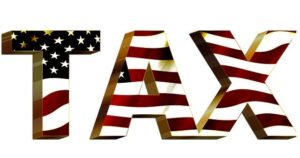Navigating UK Tax Returns with Certified Translations: A Guide for Non-Native Speakers
Non-UK residents and individuals with international ties must submit their foreign tax documents to Her Majesty's Revenue and Customs (HMRC) accompanied by certified translations in English to comply with the UK tax system. These translations mu…….

Non-UK residents and individuals with international ties must submit their foreign tax documents to Her Majesty's Revenue and Customs (HMRC) accompanied by certified translations in English to comply with the UK tax system. These translations must be precise and legally certified, ensuring that all income, assets, and liabilities are accurately reported as per UK tax laws. Employing professional Tax Documents UK translation services is essential for non-English documents, as these services guarantee both linguistic precision and legal validity in translations. They are adept in handling complex financial terminology and regulatory compliance, ensuring that numerical data, contextual nuances, and industry-specific terms are conveyed without error to prevent legal issues or fines. These specialized translation services are well-versed in UK tax laws and regulations, providing a high standard of compliance with HMRC's stringent requirements. By utilizing these services, individuals and businesses can confidently adhere to the UK's financial system, upholding transparency and legal adherence through accurate translations of tax documents.
Navigating the UK’s tax system can be complex, especially for individuals and businesses whose financial records originate from outside the UK. A pivotal aspect of this process involves translating tax documents accurately to ensure compliance with British tax laws. This article delves into the critical role of certified translations in this context, elucidating the importance of engaging professional translation services that specialize in tax documents UK. We will explore key factors to consider when selecting a service provider, the certification process to validate translated documents, and strategies for overcoming language barriers. With case studies illustrating real-world scenarios where precise translations have been instrumental in tax compliance, this guide is an essential resource for anyone facing the challenges of multilingual tax returns in the UK.
- Understanding the Necessity of Certified Translations for UK Tax Returns
- The Role of Professional Translation Services in Tax Document Compliance
- Key Considerations When Choosing a Translation Service for Tax Purposes
- Common Documents Required for UK Tax Return Translation
- The Certification Process: Ensuring Translated Tax Documents Are Valid
- Navigating Language Barriers: A Guide to Foreign Language Tax Document Translation in the UK
- Case Studies: How Reliable Translation Services Have Facilitated Tax Compliance for Non-UK Residents
Understanding the Necessity of Certified Translations for UK Tax Returns

When non-UK residents or individuals with international ties submit tax documents to Her Majesty’s Revenue and Customs (HMRC) in the United Kingdom, it is imperative that all foreign-language documents are accompanied by certified translations. The UK tax system is meticulous in its requirements for accurate reporting of income, assets, and liabilities, regardless of their origin. Translating tax-related documents into English is not just a matter of understanding; it is a legal necessity to ensure the accuracy and validity of the information presented.
Professional UK translation services play a pivotal role in this process. They provide authoritative translations that are not only linguistically precise but also legally certified, ensuring that the translated content holds the same legal standing as the original documents. This certification is crucial because it confirms the accuracy and authenticity of the translator’s work, thereby upholding the integrity of the tax submission. By leveraging these services, individuals can navigate the complexities of UK tax laws with confidence, knowing that their tax documents have been accurately conveyed in English, adhering to HMRC’s standards for compliance and reporting.
The Role of Professional Translation Services in Tax Document Compliance

When it comes to ensuring the accuracy and compliance of tax documents for individuals and businesses operating in the UK, the role of professional translation services is paramount. The UK’s diverse linguistic landscape necessitates that tax documents be accurately translated to facilitate proper reporting and adherence to legal requirements. Professional translators specializing in tax documents UK translation services are adept at navigating the complexities of both source and target languages, as well as the intricate details within financial documentation. Their expertise ensures that all numerical data, terminologies, and context-specific information is conveyed precisely, avoiding any potential for misinterpretation or errors that could lead to legal complications or penalties. These experts are not only linguistically skilled but also knowledgeable about the tax systems and regulations of both countries involved in the translation process. This dual expertise is crucial for producing translations that satisfy the stringent standards set by HM Revenue & Customs (HMRC) and other regulatory bodies, thereby ensuring full compliance with UK tax laws. Utilizing professional translation services for tax documents is a strategic decision that can safeguard individuals and businesses from the repercussions of non-compliance and support their commitment to transparency and legal integrity within the UK’s financial framework.
Key Considerations When Choosing a Translation Service for Tax Purposes

When the necessity arises to submit tax documents in the UK for individuals who are not native English speakers, selecting a reliable and accurate translation service becomes paramount. The precision and compliance of translations for tax purposes are not just about conveyance; they are integral to the legitimacy of your financial submissions. A minor discrepancy or mistranslation can lead to complications with the UK tax authorities, potentially resulting in delays or penalties. Therefore, it is crucial to engage with a translation service that specialises in legal and financial document translations. Look for UK translation services that are certified and have proficiency in the languages relevant to your documents. These providers often offer additional assurances such as adherence to industry standards like the Association of Translation Companies (ATC) or the Institute of Translation and Interpreting (ITI). They should also be well-versed in UK tax law nuances to ensure that all figures, terms, and conditions are accurately translated. This expertise is not just a matter of linguistic proficiency but also an understanding of the legal context in which these translations will be used. By choosing a translation service with a proven track record in this specific domain, you can navigate the complexities of tax submissions with greater confidence and peace of mind.
Common Documents Required for UK Tax Return Translation

When submitting tax documents to HM Revenue & Customs (HMRC) in the UK, it is imperative for non-UK residents or bilingual individuals to provide accurate and certified translations of their tax-related documents. Certified translation services play a pivotal role in ensuring that tax documents such as annual accounts, income statements, and rental income reports are correctly translated into English. These translations must be precise and compliant with UK tax laws to avoid discrepancies or delays in the tax return process. Common documents that often require professional translation for UK tax returns include, but are not limited to, foreign language pay slips, pension statements, capital gains records, and property income sources. Utilising reputable UK translation services is crucial to guarantee that all numerical data, financial figures, and relevant information are translated without errors. This meticulous attention to detail by professional translators helps taxpayers fulfil their legal obligations and ensures the accurate assessment of their UK tax liabilities.
The Certification Process: Ensuring Translated Tax Documents Are Valid

When submitting tax documents to the UK authorities, it is imperative that all foreign-language records are accurately translated into English to comply with HM Revenue and Customs (HMRC) standards. The certification process for these translations is a critical step that verifies the authenticity and reliability of the translated information. UK translation services specialising in tax documents offer professional translators who are not only fluent in both the source and target languages but also well-versed in the financial terminology and regulatory requirements specific to tax documentation. These certified translations come with a statement of accuracy and a certificate of authenticity, which attests to the truthfulness and exactness of the translation. The certification includes a signed declaration by the translator or an authorised official at the translation service, confirming that the translated text is a complete and precise rendition of the original document. This certification process is essential for tax documents as it ensures that the financial details are accurately conveyed, avoiding discrepancies that could lead to complications or delays in the tax submission process. Furthermore, employing reputable UK translation services that adhere to industry standards and have a track record of working with tax-related materials can provide additional assurance that all translations meet the stringent requirements set forth by HMRC, thereby facilitating a smoother and more efficient tax return process for individuals and businesses alike.
Navigating Language Barriers: A Guide to Foreign Language Tax Document Translation in the UK

Navigating the complexities of tax returns in the UK can be a daunting task for non-native speakers. Tax documents, with their intricate language and specific terminology, often pose significant challenges when foreign languages are involved. To ensure accuracy and compliance with HM Revenue & Customs (HMRC) requirements, professional translation services play a pivotal role. These specialized UK translation services offer certified translations that accurately convey the exact meaning of tax documents from one language to another. This certification is crucial as it confirms the translated content meets the standards set by HMRC and is a true representation of the original document. Moreover, utilizing professional translators who are not only linguistically proficient but also familiar with UK tax law, guarantees that all numerical data, legal terms, and financial nuances are accurately interpreted and presented. This meticulous approach to translation eliminates any ambiguity or misinterpretation, which could lead to costly errors or delays in the processing of tax returns. For individuals and businesses dealing with foreign language tax documents in the UK, engaging such services is not just a matter of communication but a strategic step towards fulfilling legal obligations and maintaining good standing with tax authorities.
Case Studies: How Reliable Translation Services Have Facilitated Tax Compliance for Non-UK Residents

When non-UK residents engage with the British tax system, certified translations of tax documents become a pivotal requirement. The intricacies of tax compliance are significantly eased by the expertise of professional UK translation services, which ensure that all translated tax documents adhere to legal standards and accurately reflect their original content. This article has highlighted the essential steps in selecting a reliable service provider and the certification process necessary for these translations to be valid. By exploring common documents required for UK tax return translation and providing practical case studies, it underscores the importance of precise and certified translations in navigating language barriers. For anyone facing the challenge of submitting tax documents in a foreign language to HM Revenue & Customs, this guide serves as an indispensable resource, ensuring compliance and facilitating smooth interactions with the UK’s tax authorities.





